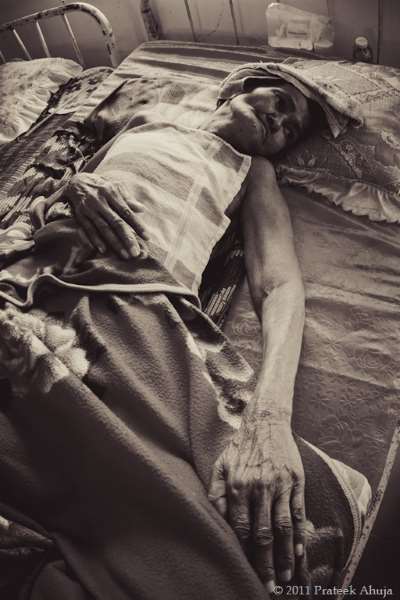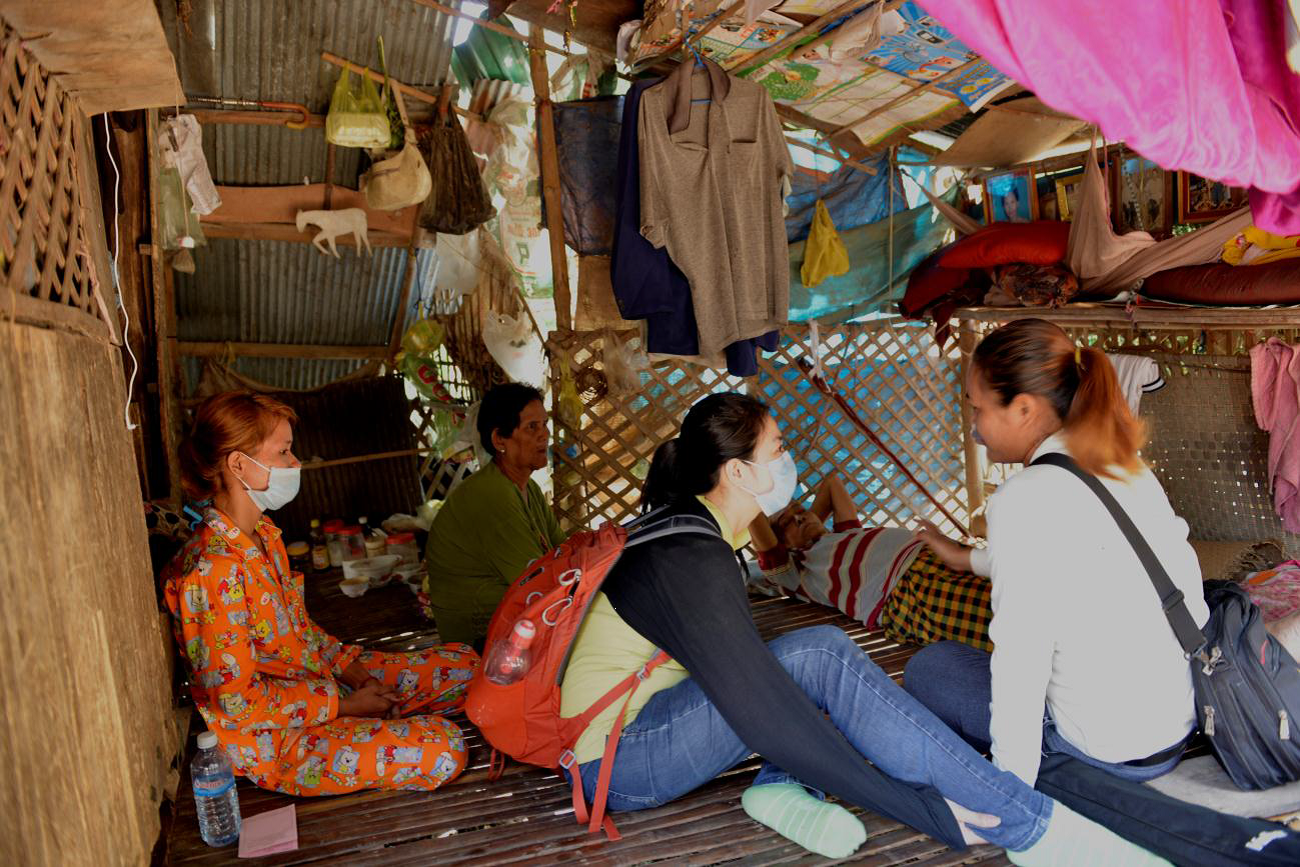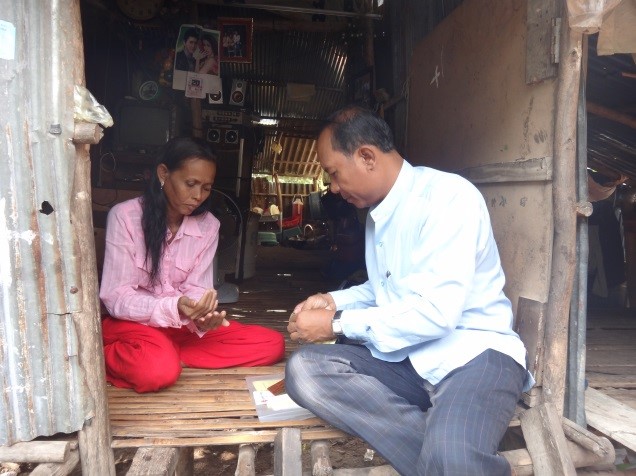
The Astounding Simplicity in the Gift of Life
The rugged urban city of Phnom Penh and its busy city streets is where Operation ASHA (OpASHA) operates with a cause; to provide healthcare to underprivileged populations in the inner city and rural areas. The organization possess a cost effective and unique system of providing healthcare for treating tuberculosis (TB) catering to thousands who have little or no access to TB treatment. OpASHA’s goal to treat and eventually cure those affected by the illness is achieved with a precise system to detect, treat, cure and contain the spread of the disease. As a first-hand witness of the work done by OpASHA, it is heartening to learn that the organization has positively impacted the lives of thousands which is especially important in Cambodia where TB affects a large percentage of the population. This success must be attributed to its dedicated engaging staff and especially to donors who contributed to the cause.
Myself, along with a team of OpASHA staff made a fieldtrip down to the various sites. It was an enlightening experience, as for the first time, I got a glimpse of the operation that occurs daily. The various sites include a hospital, health centres right down to the homes of the patients. The complex ground operation can be compartmentalized into two parts; the detection of TB and its treatment.
Visiting Pochentong Referral Hospital, I witnessed a modest compound the size of three football fields. Some of the buildings were meant for TB alone consisting of an x-ray room, sputum diagnosis facility, a counselling room and a TB-specific ward with a handful of beds. The other facilities catered to general health issues. The aforementioned buildings are single-story buildings that are built of concrete, housing patients, doctors and nurses as well as trainees. At the TB clinic, TB patients each holding a yellow and white slip of paper were seen to stream into the clinic for treatment and TB counselling. Inside the small room, a casual observer will be able to notice its simplicity where aged walls and chairs littered the consultation room. Yet, this small room is vital as it is where patients receive education about the potentially deadly disease. Education is essential for these patients as many of them, poorly educated are not aware of its implications and the severity of not receiving any treatment. As such, through education and counselling, the counselling room functions as the dissemination point to which knowledge spreads around the villages, thereby developing a more vigilant mind-set about TB in the rural areas.

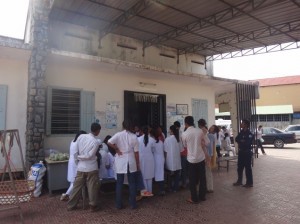
Problems cited by doctors such as Dr.Soum Banna highlight that the lack of knowledge often translates into inaction to seek medical help. Furthermore the constant need for check-ups is seen as an opportunity cost to earning a daily wage. While some may think that this behaviour is irrational, we should understand that these patients often refuse treatment due to considerations beyond their personal health such as earning money to ensure the survival of their families. Secondly, taking medication for TB often causes side-effects that make it difficult for their daily functioning and another impediment towards treatment is due to the distances of medical centres and patients’ homes. Often, many patients do not have the financial ability to travel and therefore seeking treatment in itself poses as a challenge. OpASHA have effectively managed to aid patients by understanding these inner-city and rural village concerns.
One of the ways in which OpASHA manages to have an effective system that caters to its target population is through the provision of on-site detection and case finding as well as educating the community. Each geographical area is tended by a Field Supervisor. The Field Supervisor is tasked with the duty to check for suspected TB cases in his appointed area. He or she will ask each household for possible and visible symptoms of TB. If the checklist of symptoms fits the criteria for TB, sputum samples will be collected and examined at the medical centre for diagnosis.
Living circumstances at the villages were minimal in the two villages I visited; Anlongkanggan and Tmarkul Village. The population in these rural villages were poor where makeshift houses made of scrap metal and wooden stilts are a common sight. They lived frugally and were visibly poor based on their current living conditions. Two of the patients I saw were both five months into their treatment had problems with mobility. A mother of three, with an eye blind and looked weak seemed to be in no shape to spend the costs associated with travelling. At the second household I visited, I met an 86 year old woman living with her son, 46, whose legs were amputated. They were supported by the elderly woman’s grandson who worked at a nearby shop and was attending school at the same time. The third family were once beneficiaries of OpASHA’s work where both the mother and her son were cured of TB. Her son lives in close proximity with his mother and therefore, when his mother was tested positive for TB, the vigilant Field Supervisor saw the need to monitor those around her closely. Notably, as families live closely with one another for greater social support, it is also a risk as infectious diseases can spread easily through the entire household. Monthly Income for most families described here did not exceed US$ 100, which is barely sufficient for survival. Undeniably healthcare which is taken as a basic human right for many people has eluded these communities.
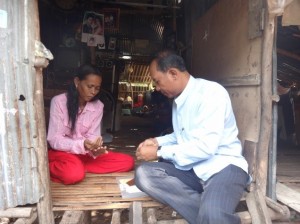

The administrative staff, nurses, doctors and on-site field workers in Cambodia work daily in synchrony to produce the spectacular results attained within a short period of three and a half years. Field Supervisors catering directly to the villages work relentlessly despite initial resistances from the people. They took it in their stride and tried their best to accommodate to the needs of the population they serve. Many of them head to the various houses to deliver the medication to TB patients directly circumventing the barriers of access to medical attention. The delivery is often done very early in the morning such that the medication is taken before these patients leave for their factory jobs. After which, these Field Supervisors will work on case finding, ensuring their allocated districts are clear of the infectious TB.
I witnessed the administering of medication to two households. The process was fast, as both parties were very familiar with the procedures. The care in which I observed was endearing as I knew that the five minute exchange was not simply a person giving medication but rather, the gift of life. While these exchanges occurred only through short utterances, I could feel the gratitude the patients had and the genuine concerns the Field Supervisors exemplified through the simplest of actions. I accompanied the Field Supervisor to do a routine check for TB and witnessed the exchanges between him and the villagers. The Field Supervisor provided education about possible symptoms of TB and preliminary checks for possible TB cases. As we surveyed the village, we passed a provision shop where the Field Supervisor requested to paste a sticker at the corner of their wall, which informs residents in the area about the organization as well as provide the cell phone number of the Field Supervisor. The information enables villagers an avenue to report suspected TB cases and seek aid when affected by TB.
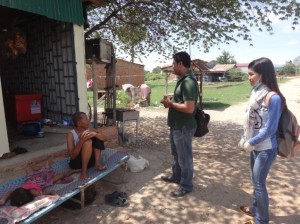

Operation in rural or inner-city is vastly different from other established care models as attitudes, behaviours and concerns differ greatly. The challenges of providing healthcare to these patients range firstly from geographical distances to and from medical centres and secondly, the inability to disrupt work and finally, the costs associated with travel. Through OpASHA, I have witnessed what going the extra distance meant. I saw raw compassion between Field Supervisors and the villagers where the Field Supervisors relentlessly cared for those who are neglected and forgotten by the vastly progressive and affluent societies. While many have a romanticized view of the notion of the “gift of life”, for me, I believe that the truth of the term is actually demonstrated in the simplest of actions to which even readers of this article can contribute to as a volunteer or donor for OpASHA’s cause.
Written by: Mr Edson Kieu (Intern) and edited by and Ms Jacqueline Chen (Country Director)


